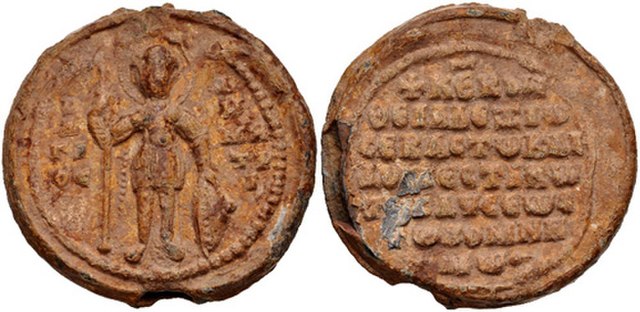The title of grand domestic was given in the 11th–15th centuries to the commander-in-chief of the Byzantine army, directly below the Byzantine Emperor. It evolved from the earlier office of the domestic of the Schools, and came to rank as one of the senior dignities in the Byzantine state during the last centuries of its existence. From Byzantium, it was also adopted by the breakaway Empire of Trebizond, as well as by the 14th-century Serbian Empire.
Emperor John VI Kantakouzenos held the office of Grand Domestic during the reign of his close friend, Andronikos III Palaiologos
The office of the Domestic of the Schools was a senior military post of the Byzantine Empire, extant from the 8th century until at least the early 14th century. Originally simply the commander of the Scholai, the senior of the elite tagmata regiments, the Domestic quickly rose in prominence: by the mid-9th century, its holders essentially occupied the position of commander-in-chief of the Byzantine army, next to the Emperor. The office was eclipsed in the 12th century by that of the Grand Domestic, and in the Palaiologan period, it was reduced to a purely honorary, mid-level court dignity.
Lead seal of Alexios I Komnenos as "Grand Domestic of the West"


